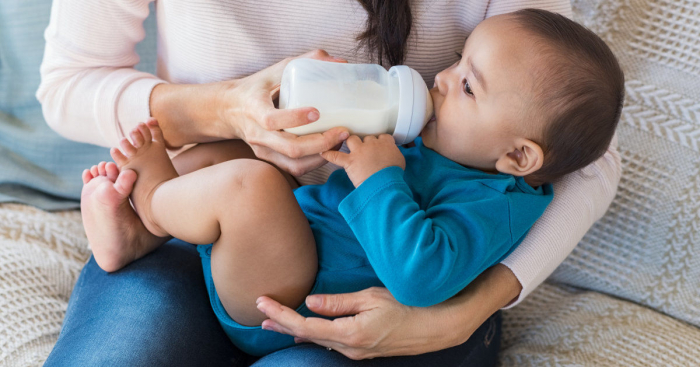A study of almost 30,000 children found that breastfeeding had a “protective” effect which reduced the chance of having weight-related problems in the future.
Babies who are exclusively bottle-fed are 25 per cent more likely to be obese when they grow up, while in some countries the risk increases by up to 90 per cent.
The research, which included data from 16 European countries, found that babies who are given a mixture of breastfeeding and formula milk are 12 per cent more likely to end up obese than if they only had breast milk.
According to experts involved in the study, the reason formula milk may cause babies to gain more weight is because it is developed from cows' milk which has higher levels of protein and may trigger the growth of fat cells.
The WHO has since called for more support to help mothers breast feed and less promotion of formula milk.
Dr Joao Breda, head of the WHO European office for prevention and control of noncommunicable diseases, said governments must do more to promote breastfeeding.
“Breastfeeding has a really strong protective effect. The evidence is there. The benefit is outstanding so we should be telling people,” Breda said.
Sue Ashmore, director of the Unicef UK’s Baby Friendly Initiative agreed, adding that breastfeeding is “the first defence against the epidemic of obesity”.
“In the UK we have some of the lowest breastfeeding rates in the world, with eight out of ten women stopping breastfeeding before they want to,” Ashmore said.
Despite the findings, only around one per cent of mothers in Britain breastfeed their child for at least six months without using a bottle, the latest figures from Unicef show.
In 2018, a report by Public Health England (PHE) revealed that the number of women breastfeeding their babies six to eight weeks after giving birth had declined.
Just 42.7 per cent of mothers breastfeed their babies when they are six weeks old, according to most recent data for 2017-2018.
The rate has fallen from 43.1 per cent in 2015-2016 and 43.8 per cent in 2014-2015.
According to the NHS’s Start4Life campaign, the benefits of breastfeeding include protection from infection and nutritional balance, as well as a lower chance of sudden infant death syndrome, childhood leukaemia and allergies.
It also claims that breastfed babies are less likely to develop diabetes or become overweight when they are older and says mothers benefit by bonding with their child and having a lower risk of developing breast and ovarian cancer, osteoporosis, diabetes and cardiovascular disease.
The WHO recommends that mothers breastfeed their baby for the first six months of life, after which they can start eating solids, supplemented by breastfeeding.
It places no upper age limit on breastfeeding but encourages mothers to do so until their child is around two years old.
The Independent
More about: Bottle-fedbabies
















































